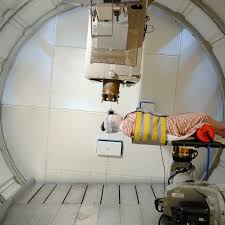
Breaking News
 Rand Paul just revealed he's working with RFK Jr. to prosecute Fauci. But Trump's DOJ is ign
Rand Paul just revealed he's working with RFK Jr. to prosecute Fauci. But Trump's DOJ is ign
 BREAKING EXCLUSIVE: "I Think Bill Gates Is The Boss," Epstein Survivor Claims Gates Was...
BREAKING EXCLUSIVE: "I Think Bill Gates Is The Boss," Epstein Survivor Claims Gates Was...
 Musk Offers Free Starlink As Iran Protests Endure Internet, Comms Blackout
Musk Offers Free Starlink As Iran Protests Endure Internet, Comms Blackout
 South Korea Seeks Death Penalty For Ex-President Yoon's Botched Martial Law Attempt
South Korea Seeks Death Penalty For Ex-President Yoon's Botched Martial Law Attempt
Top Tech News
 Superheat Unveils the H1: A Revolutionary Bitcoin-Mining Water Heater at CES 2026
Superheat Unveils the H1: A Revolutionary Bitcoin-Mining Water Heater at CES 2026
 World's most powerful hypergravity machine is 1,900X stronger than Earth
World's most powerful hypergravity machine is 1,900X stronger than Earth
 New battery idea gets lots of power out of unusual sulfur chemistry
New battery idea gets lots of power out of unusual sulfur chemistry
 Anti-Aging Drug Regrows Knee Cartilage in Major Breakthrough That Could End Knee Replacements
Anti-Aging Drug Regrows Knee Cartilage in Major Breakthrough That Could End Knee Replacements
 Scientists say recent advances in Quantum Entanglement...
Scientists say recent advances in Quantum Entanglement...
 Solid-State Batteries Are In 'Trailblazer' Mode. What's Holding Them Up?
Solid-State Batteries Are In 'Trailblazer' Mode. What's Holding Them Up?
 US Farmers Began Using Chemical Fertilizer After WW2. Comfrey Is a Natural Super Fertilizer
US Farmers Began Using Chemical Fertilizer After WW2. Comfrey Is a Natural Super Fertilizer
 Kawasaki's four-legged robot-horse vehicle is going into production
Kawasaki's four-legged robot-horse vehicle is going into production
 The First Production All-Solid-State Battery Is Here, And It Promises 5-Minute Charging
The First Production All-Solid-State Battery Is Here, And It Promises 5-Minute Charging
'Proton Therapy' is Noninvasive Treatment for High-Risk Cancers - In Use Today With...

This exciting new study shows that "proton therapy" is a stunningly effective noninvasive treatment against high-risk childhood cancers – and it comes with minimal side effects.
Unlike traditional photon radiation using x-rays, proton radiation therapy (PRT) is a non-invasive, precise cancer treatment that uses a beam of protons moving at very high speeds to destroy the DNA of cancer cells, killing them and preventing them from multiplying.
Highly targeted, PRT has significant promise for treating tumors in very young children and may reduce radiation exposure to healthy, developing tissue that may result in lifelong impacts.
Researchers from Children's Hospital of Philadelphia (CHOP) and the Perelman School of Medicine at the University of Pennsylvania analyzed the largest cohort to date of pediatric patients with high-risk neuroblastoma who were treated with proton radiation therapy.
Not only did they find that proton therapy was effective at reducing tumors, they also found that it demonstrated minimal toxicity to surrounding organs.
The study is published online in the International Journal of Radiation Oncology.
"These data are extremely encouraging and could be a game-changer for a number of reasons," said lead author Christine Hill-Kayser, Chief of the Pediatric Radiation Oncology Service at Penn Medicine.

 Storage doesn't get much cheaper than this
Storage doesn't get much cheaper than this

